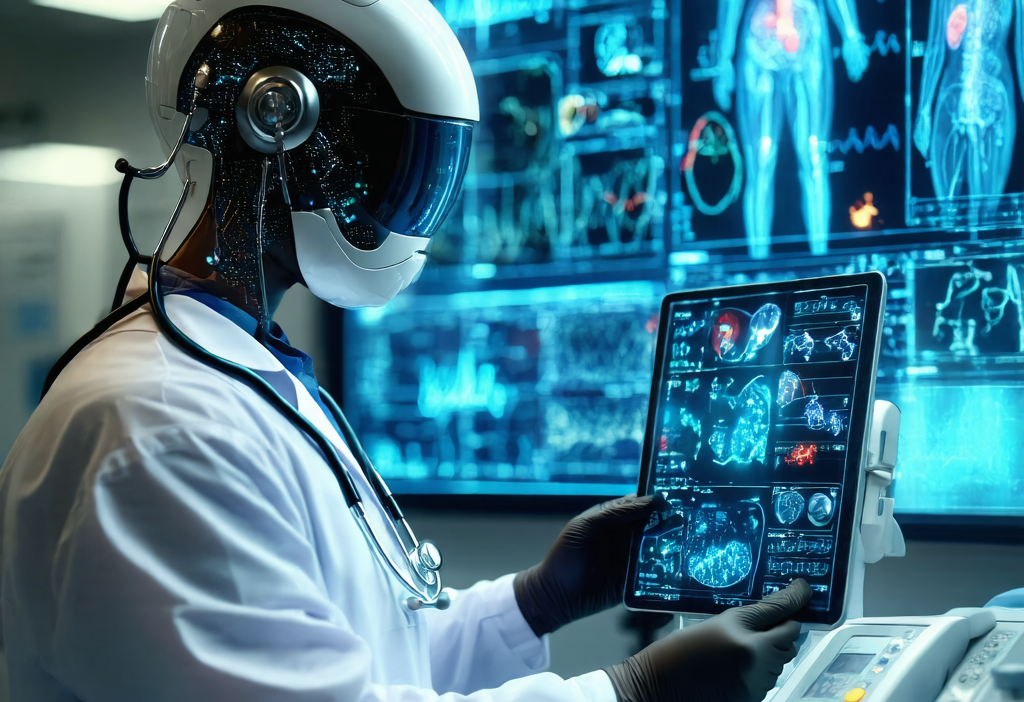How Artificial Intelligence is Transforming the Future of Healthcare
In recent years, artificial intelligence (AI) has emerged as a game-changer in healthcare. From diagnostics to treatment plans, AI is revolutionizing how we approach medical care. This blog explores the latest trends in AI-driven healthcare and what they mean for patients and professionals alike.
Current Applications of AI in Healthcare
The integration of AI into healthcare has already made a significant impact. One of the most notable applications is in medical imaging, where AI algorithms can analyze scans with remarkable accuracy. For instance, tools like Google Health’s DeepMind have demonstrated the ability to detect early signs of diseases such as cancer or diabetic retinopathy more efficiently than human experts.
Another area where AI is making waves is personalized medicine. By analyzing vast amounts of patient data, AI can help tailor treatments to individual genetic profiles, ensuring more effective outcomes with fewer side effects. This approach has been particularly successful in oncology, where precision medicine is becoming a cornerstone of cancer treatment.
The Future of AI-Driven Diagnostics
Looking ahead, the future of diagnostics seems bright thanks to AI advancements. Imagine a world where wearable devices continuously monitor vital signs and use AI to predict potential health issues before symptoms even arise. This proactive approach could significantly reduce hospital admissions and improve patient outcomes.
Moreover, AI is enhancing telemedicine platforms, making healthcare more accessible, especially in remote areas. Virtual consultations powered by AI can now offer accurate diagnoses and recommendations, bridging the gap between patients and specialists who may be thousands of miles away.
Ethical Considerations and Challenges
Despite its promise, the adoption of AI in healthcare is not without challenges. Privacy concerns are paramount, as the use of patient data raises questions about security and consent. Ensuring that AI systems are transparent and accountable is another critical issue. Patients need to trust that their data is being used responsibly and that decisions made by AI algorithms are fair and unbiased.
Additionally, there’s the challenge of integrating AI into existing healthcare infrastructure. Training medical professionals to work alongside AI technologies and ensuring seamless integration with current systems are essential steps for widespread adoption.
The Road Ahead: Overcoming Barriers
To fully realize the potential of AI in healthcare, several barriers must be addressed. First and foremost is the need for robust regulatory frameworks that ensure patient safety while fostering innovation. Collaboration between governments, tech companies, and healthcare providers will be key to creating a cohesive strategy.
Public education also plays a crucial role. Patients need to understand how AI benefits their care and feel confident in its use. By fostering trust and transparency, we can create an environment where both patients and providers embrace AI as a valuable tool for better health outcomes.
Conclusion
The integration of AI into healthcare is not just a trend; it’s a necessity. As technology continues to evolve, so too will its applications in medicine. By addressing ethical concerns, ensuring data security, and fostering collaboration, we can unlock the full potential of AI in transforming healthcare for the better.
For more information on this topic, check out these resources:





